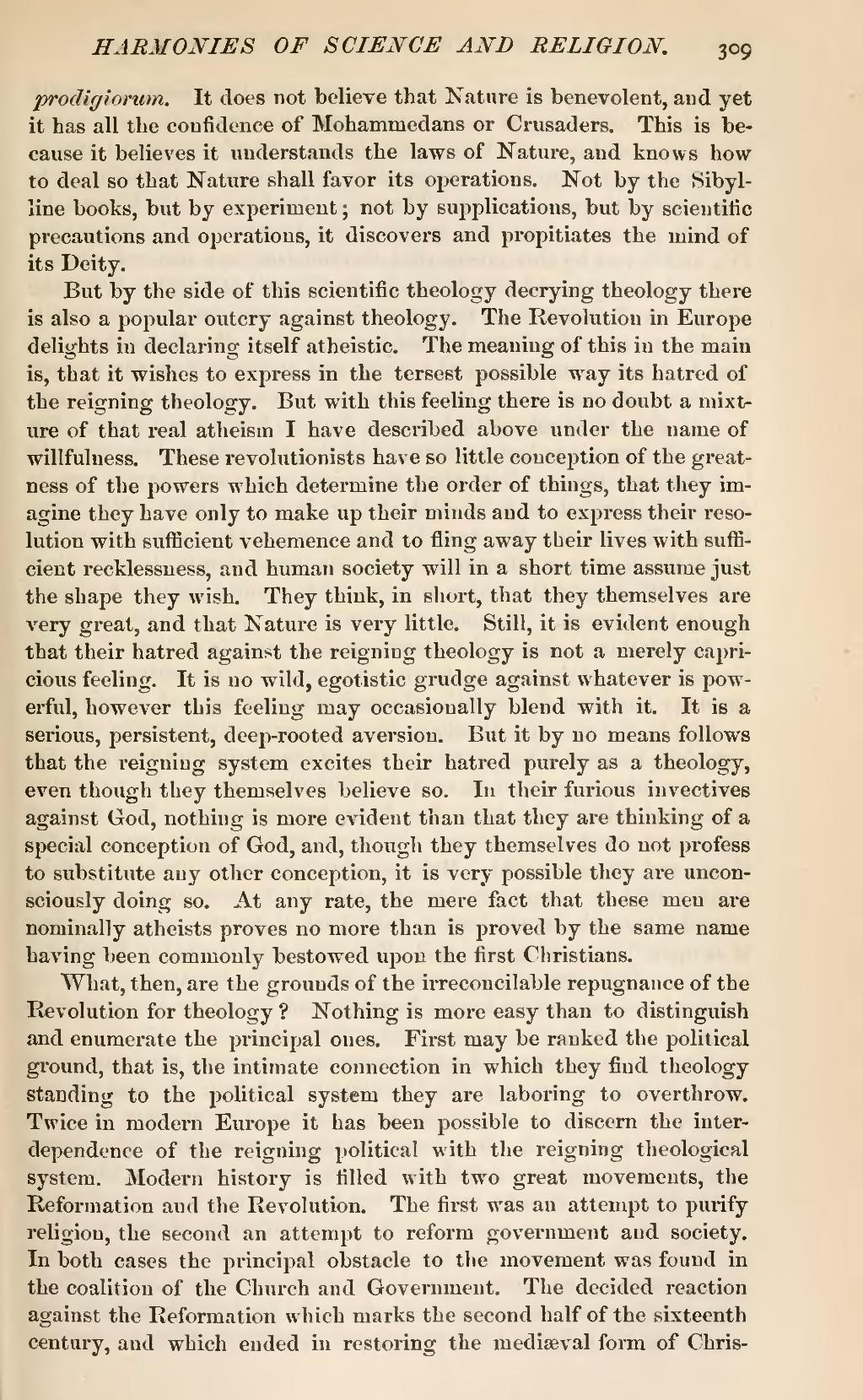prodigiorutm. It does not believe that Nature is benevolent, and yet it has all the confidence of Mohammedans or Crusaders. This is because it believes it understands the laws of Nature, and knows how to deal so that Nature shall favor its operations. Not by the Sibylline books, but by experiment; not by supplications, but by scientific precautions and operations, it discovers and propitiates the mind of its Deity.
But by the side of this scientific theology decrying theology there is also a popular outcry against theology. The Revolution in Europe delights in declaring itself atheistic. The meaning of this in the main is, that it wishes to express in the tersest possible way its hatred of the reigning theology. But with this feeling there is no doubt a mixture of that real atheism I have described above under the name of willfulness. These revolutionists have so little conception of the greatness of the powers which determine the order of things, that they imagine they have only to make up their minds and to express their resolution with sufficient vehemence and to fling away their lives with sufficient recklessness, and human society will in a short time assume just the shape they wish. They think, in short, that they themselves are very great, and that Nature is very little. Still, it is evident enough that their hatred against the reigning theology is not a merely capricious feeling. It is no wild, egotistic grudge against whatever is powerful, however this feeling may occasionally blend with it. It is a serious, persistent, deep-rooted aversion. But it by no means follows that the reigning system excites their hatred purely as a theology, even though they themselves believe so. In their furious invectives against God, nothing is more evident than that they are thinking of a special conception of God, and, though they themselves do not profess to substitute any other conception, it is very possible they are unconsciously doing so. At any rate, the mere fact that these men are nominally atheists proves no more than is proved by the same name having been commonly bestowed upon the first Christians.
What, then, are the grounds of the irreconcilable repugnance of the Revolution for theology? Nothing is more easy than to distinguish and enumerate the principal ones. First may be ranked the political ground, that is, the intimate connection in which they find theology standing to the political system they are laboring to overthrow. Twice in modern Europe it has been possible to discern the interdependence of the reigning political with the reigning theological system. Modern history is filled with two great movements, the Reformation and the Revolution. The first was an attempt to purify religion, the second an attempt to reform government and society. In both cases the principal obstacle to the movement was found in the coalition of the Church and Government. The decided reaction against the Reformation which marks the second half of the sixteenth century, and which ended in restoring the mediæval form of Chris-
